Moringa oleifera, often called the “Miracle Tree,” has been used for centuries in traditional medicine for its impressive nutrient profile and potential health benefits. Rich in vitamins, minerals, antioxidants, and plant proteins, moringa leaf has become a popular superfood in smoothies, teas, and wellness supplements.
However, as with any concentrated plant-based product, it’s important to understand that more is not always better. While generally well tolerated in moderate amounts, moringa leaf powder can cause side effects in certain individuals, particularly when taken in high doses or alongside certain medications.
1. Digestive Upset
Possible Symptoms:
-
Nausea
-
Diarrhoea
-
Stomach cramps or bloating
Why it happens:
Moringa leaf powder is high in fibre and bioactive plant compounds. For some people, especially those not used to a high-fibre diet, this can cause mild gastrointestinal discomfort.
How to minimise:
-
Start with ½–1 teaspoon daily and gradually increase.
-
Ensure adequate water intake to help your digestive system process the extra fibre.
2. Interference With Thyroid Function (Theoretical Concern)
Some animal studies suggest very high doses of certain plant compounds (like glucosinolates, also found in cruciferous vegetables) can affect thyroid hormone production. Moringa contains these compounds in small amounts, and there’s no strong human evidence showing it worsens hypothyroidism.
However, those on thyroid medication (e.g., Thyroxine) should:
-
Take moringa several hours after medication to avoid absorption interference.
-
Consult their healthcare provider if unsure.
| "I am really impressed with the Moringa capsules ..I have been taking them for two weeks now and definitely feel more vital and alive." - Sherry (Verified Customer) |
 |
3. Blood Pressure
Moringa may have a natural blood pressure-lowering effect due to its antioxidant and plant compound profile.
Who should be cautious:
-
People on antihypertensive medication (for high blood pressure)
-
People on insulin or other diabetes medications
These effects could enhance the action of medication, increasing the risk of low blood pressure or hypoglycaemia.
4. Blood-Thinning Potential
Some studies indicate moringa may have mild blood-thinning properties. This could be an issue for:
-
People on anticoagulant medication (e.g., warfarin)
-
Those with bleeding disorders
-
People preparing for surgery
Recommendation: Discontinue moringa at least 2 weeks before surgery and check with your doctor if you’re on blood thinners.
5. Pregnancy and Breastfeeding
While moringa leaves are eaten traditionally in some cultures during pregnancy, concentrated powders and extracts should be used cautiously.
-
Pregnancy: High doses of moringa root, bark, or flowers (not leaves) may stimulate uterine contractions — these parts should be avoided entirely. Leaf powder in normal food amounts is likely fine, but supplementation should be discussed with a healthcare provider.
-
Breastfeeding: Moringa leaf is sometimes used to support lactation, but evidence is mixed. Only use under professional guidance.
| "This powder has been a game changer 🫶 I have both myself and my partner onto it now and we are reaping benefits! He feels the energy boost and I love how less bloated I am during the day! Both of our skin is clearing up nicely!!" - Felicity M. (Verified Customer) |
 |
6. Possible Allergic Reactions
Though rare, some individuals may be allergic to moringa. Reactions could include skin rash, itching, or swelling. Stop use immediately if symptoms occur.
Safe Usage Tips
-
Dosage: 1–2 teaspoons (2–4 grams) daily for most adults is considered a moderate, safe range.
-
Timing: Take separately from medications, especially thyroid and blood sugar medications.
-
Source: Choose organic, lab-tested moringa to avoid contamination with heavy metals or pesticides.
Moringa leaf powder is a nutrient-dense superfood with many potential health benefits, but it’s not free from possible side effects. Most issues can be avoided by starting with a small dose, monitoring your body’s response, and being mindful of medication interactions.
When in doubt — especially if you have a medical condition or take prescription drugs — speak with your healthcare provider before adding moringa to your daily routine.
Organic Moringa Leaf PowderA powerful supplement for your health and wellness. Order Now |

|
Frequently Asked Questions
What does Moringa do for your body?
Moringa is a nutrient-dense superfood rich in vitamins A, C, E, calcium, potassium, and antioxidants. It may help protect tissues of vital organs. It's also traditionally used for hormone and digestive support.
Who cannot take Moringa?
While Moringa is safe for most people, those who are pregnant, breastfeeding, or on blood pressure or thyroid medication should consult a healthcare professional before taking it. It's best to consult your healthcare provider before taking Moringa supplements for regular use.
Is Moringa legal in Australia?
Yes, Moringa is legal and available in Australia as a supplement.However, it is categorised as a 'novel food' which makes it unavailable as a regular food item. At Forest Super Foods, our Moringa is organically grown and meets all Australian food safety and labelling standards.
What happens if I take Moringa every day?
Daily Moringa use may support overall wellbeing, energy, and digestion. Many people experience better focus and reduced inflammation with consistent use. Just be sure to follow the recommended dose, as high quantities may lead to digestive discomfort in some people.



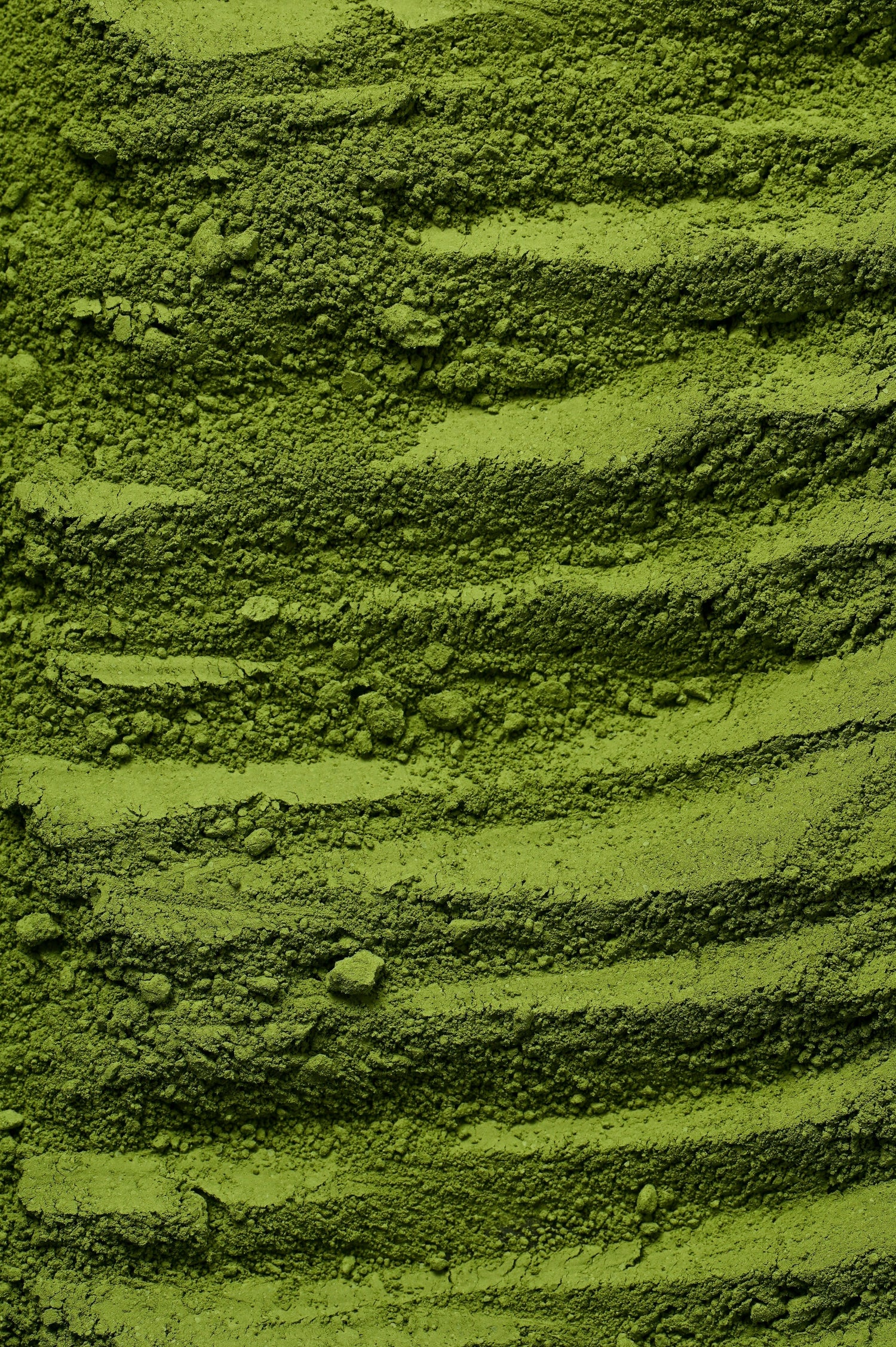

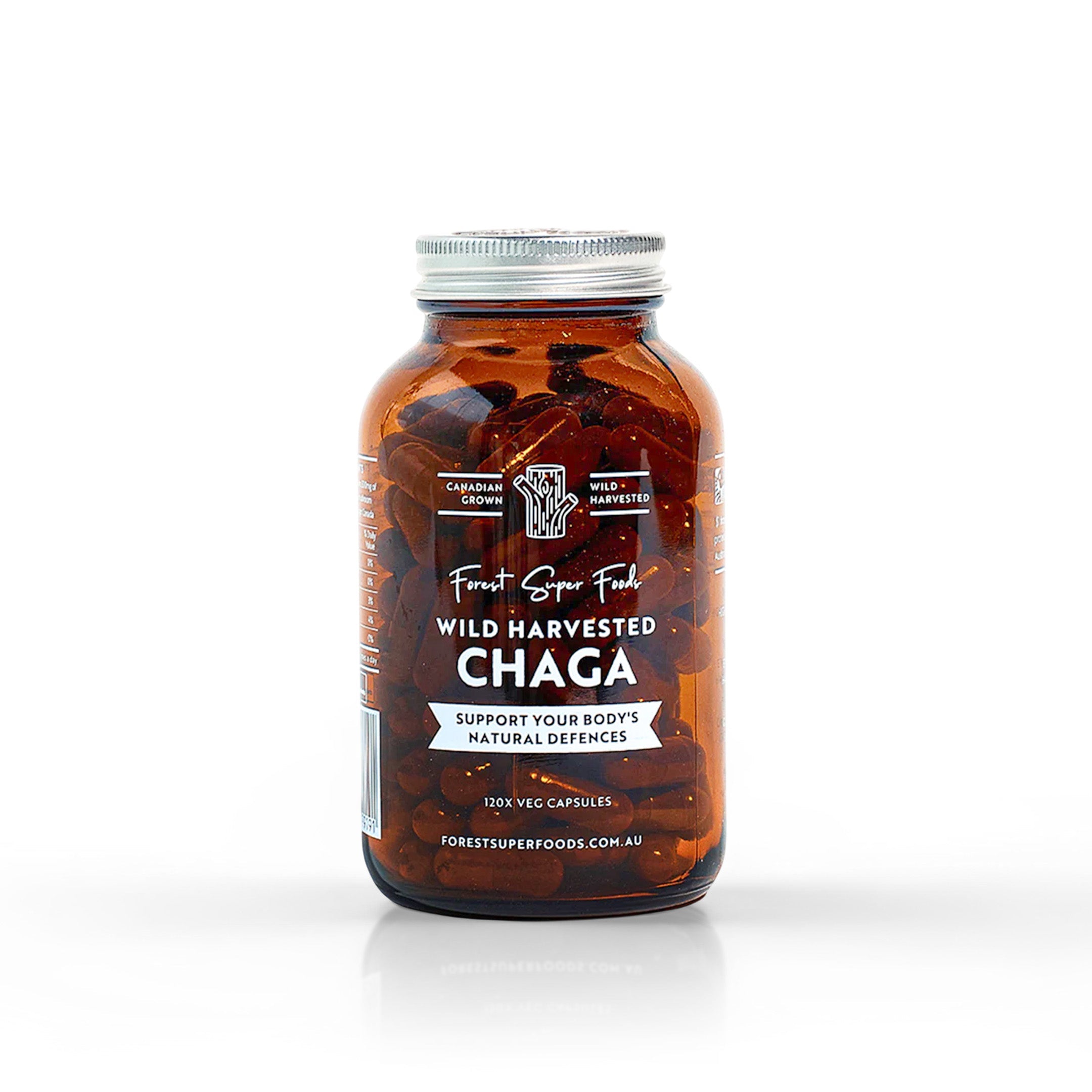
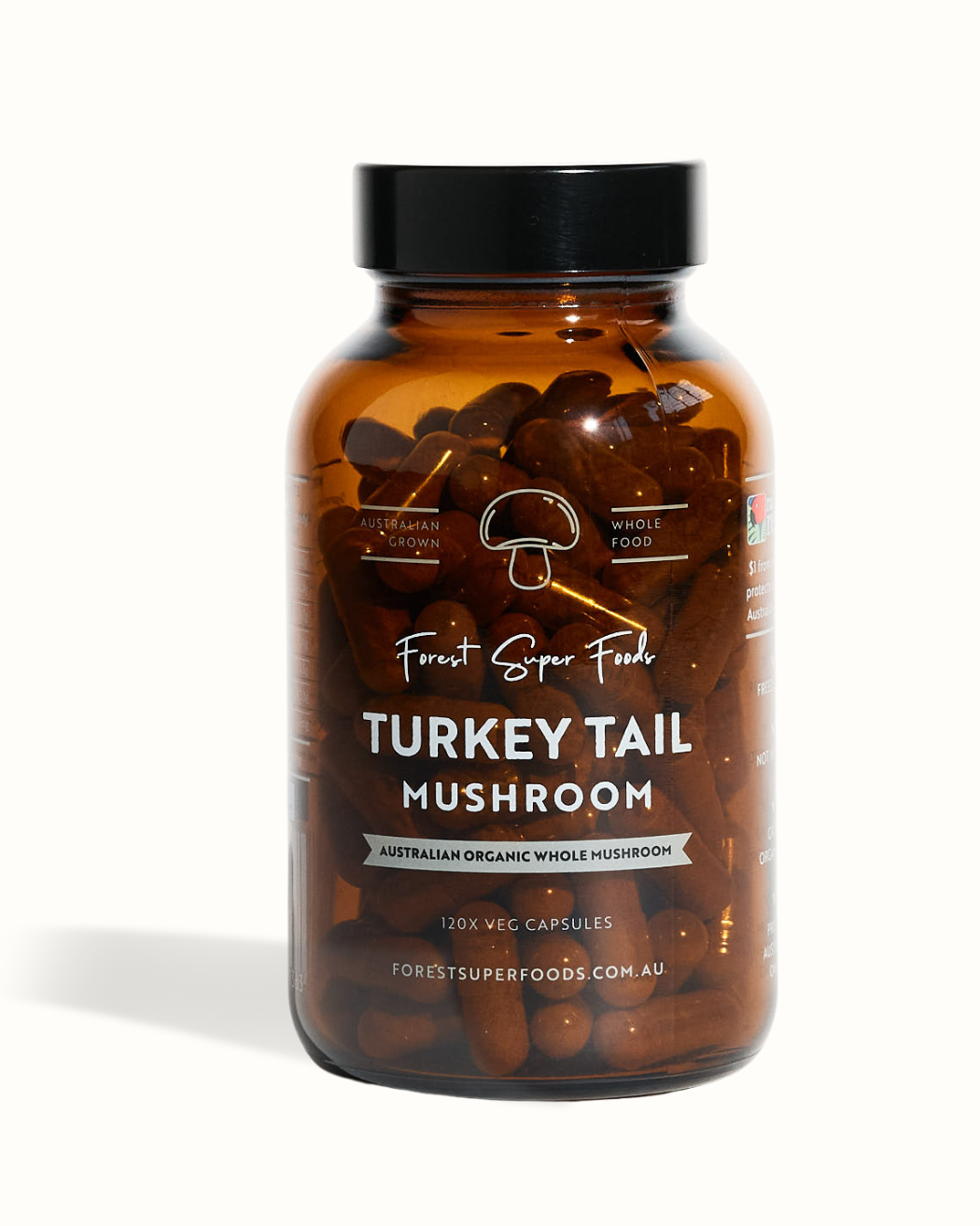
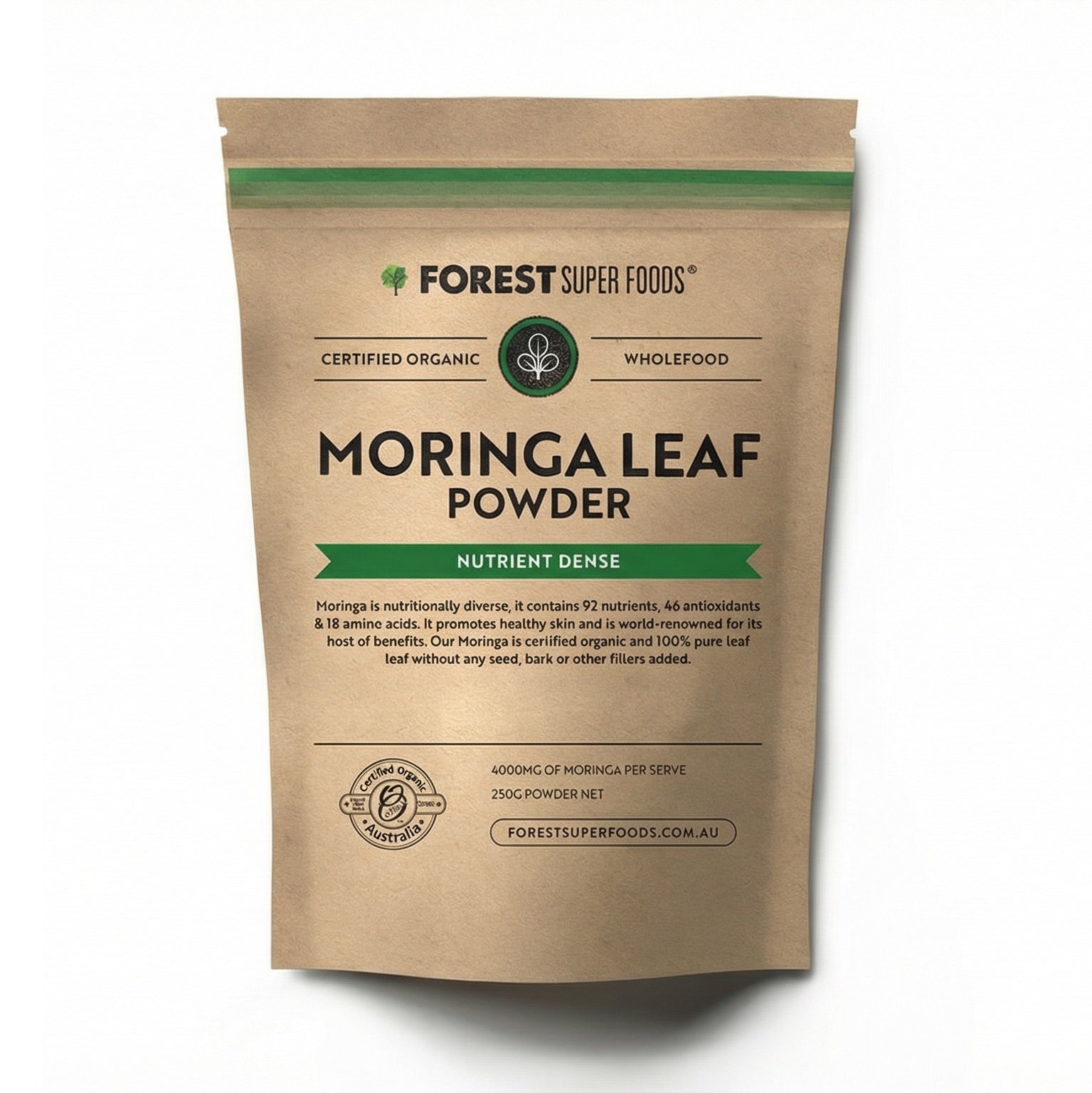
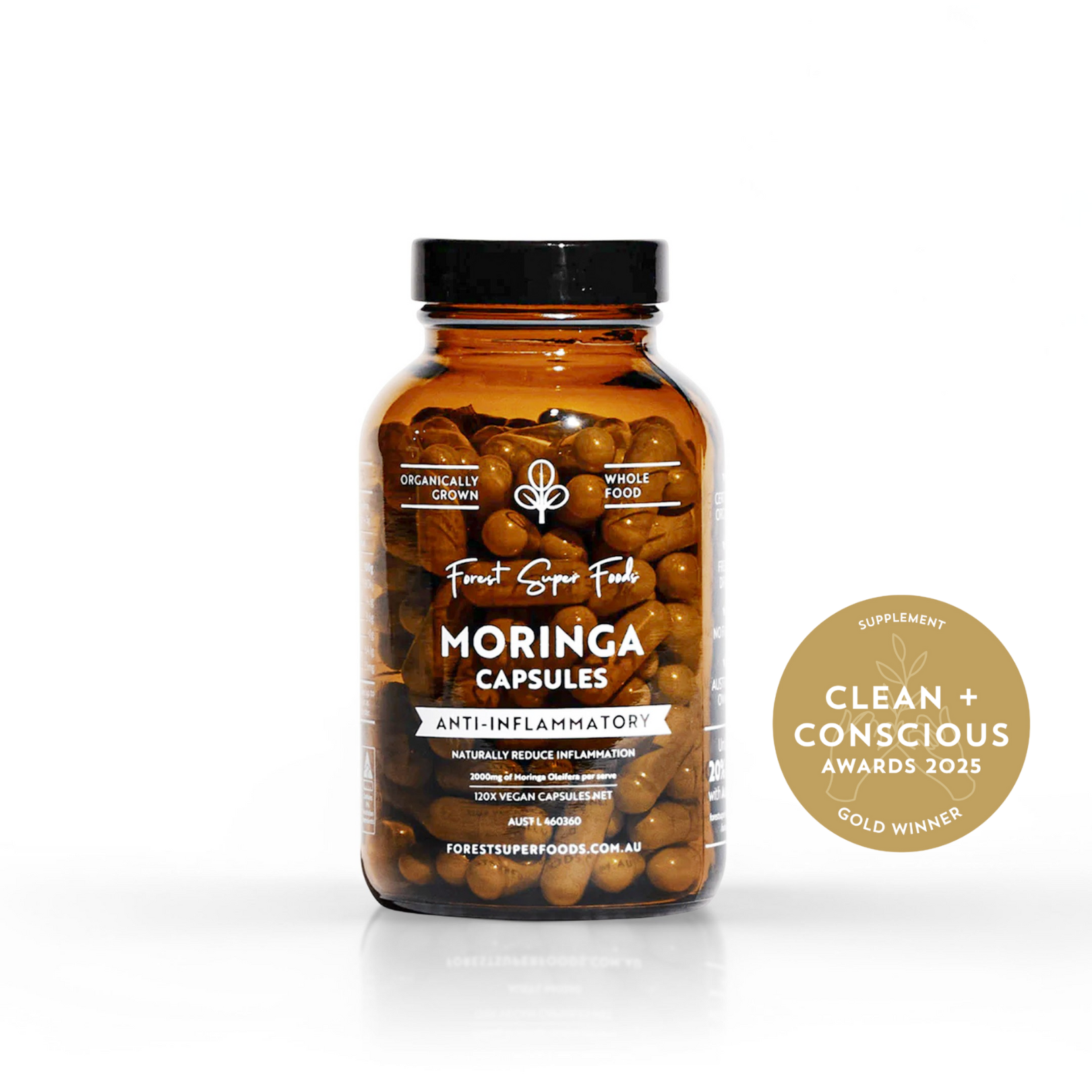
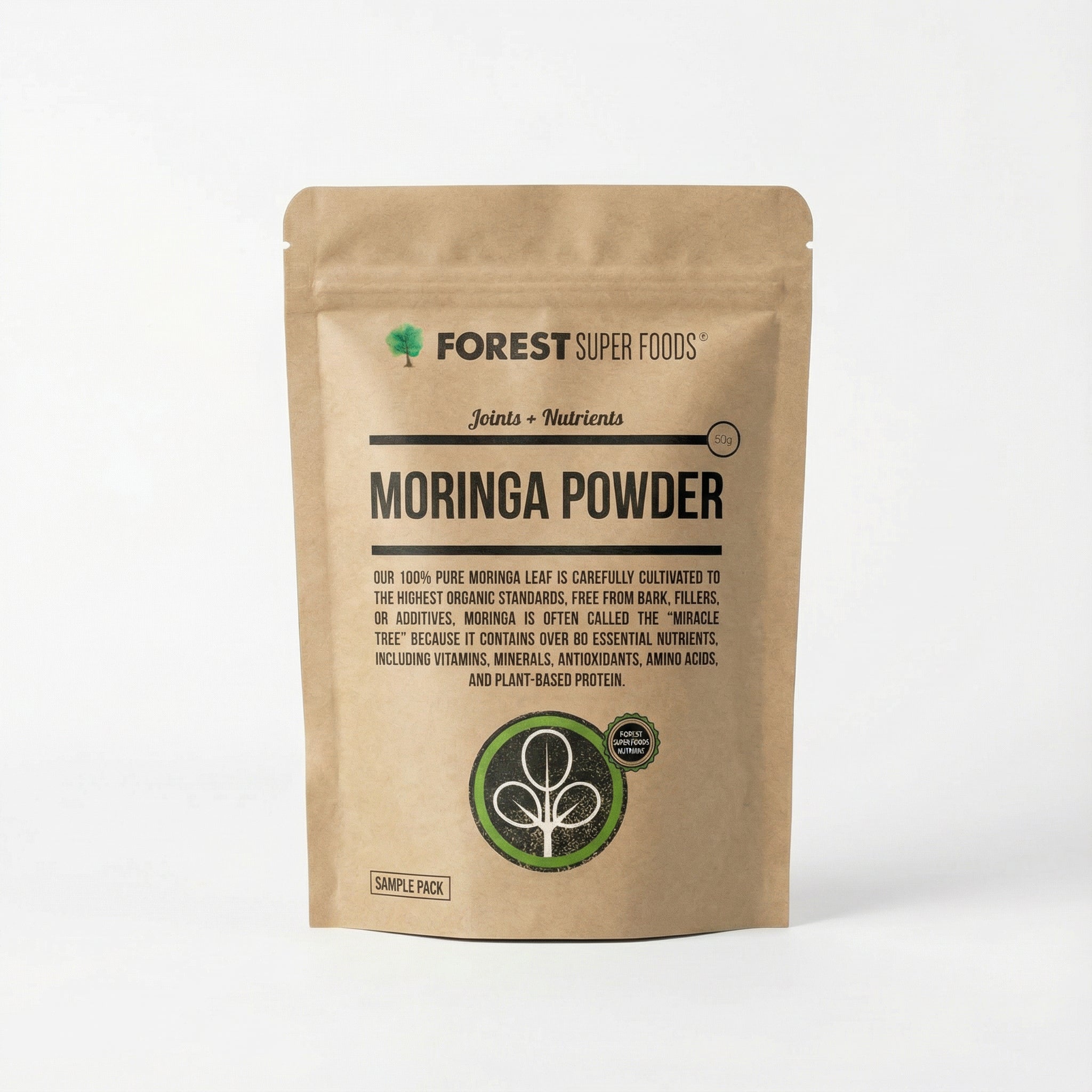
Leave a comment
All comments are moderated before being published.
This site is protected by hCaptcha and the hCaptcha Privacy Policy and Terms of Service apply.